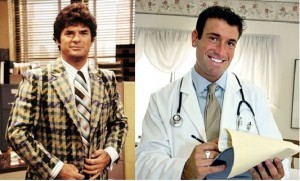In last week’s post, I talked about two of the distinct professional differences between salespeople and physicians. The following is a continuation of these thoughts….
3. Physicians don’t care if we take their advice, salespeople need their clients to buy the remedy: In reality, your doctor does not have a vested interest in whether we take their advice or not. They are professionals at identifying and recommending solutions to problems. But, their success or their income is not dependent upon whether their patients take their advice, fill the prescription, follow the plan or not. That is up to the patient. Their job is to identify the issue, understand its cause, provide their professional expertise to create and recommend a solution and leave the rest up to the patient.
In the sales realm, we want, need, and are dependent upon our clients buying and using our solution. If they don’t buy from us, use our services or engage in a professional relationship, we accomplish very little as it relates to our job description and our paycheck. Unless we are willing and able as sales professionals to truly offer advice and solutions as resource experts without being dependent upon compensation or a subsequent order, we will likely not be seen as credible or unbiased like our fellow medical professionals.
4. Physicians know how to refer out, salespeople don’t: Face it, we are specialists. We have a product or service that we are selling that we need people to buy. If and when our clients are not interested in or have a need for our offering, we often move on to someone who does. In the medical profession, specialists treat specific issues. If their particular area of interest isn’t able to provide the solution to the problem, they recommend their patients to someone who does. They know they are specialists and are not motivated to try to solve or fix something that they are not very good at. Once the doctor discovers this, they use their knowledge of the situation to help their patients find someone who has the professional expertise and skills to take care of it.
As sales professionals, being as trusted a resource for clients, as our local physician are to their patients, requires that we hold ourselves accountable for uncovering the problem and helping our clients find the solution. This means that we stay engaged with a prospect that may not or will not be interested in buying from us right now because we are aware of what their issues are and we know how to connect them with the person best equipped to help them. Being a better professional resource enhances our credibility and increases clients’ trust in us – a definite step in the right direction.
The doctor-patient relationship is a great standard by which we can measure our client relationships. To have that level of relationship involves much more than simply being an effective diagnostician; it involves a desire to meet very high levels of trust and credibility, a commitment to solve without strings attached, and the ability to provide your client unconditional access to the answers to their problems and challenges. This is a pretty high standard – yet, it is one we can all strive for in these challenging and changing times. And, it is a standard by which all sales professionals need to be heading toward if they want to continue their success in this new, dynamic business environment.
Congratulations
Your first AWS Elastic Beanstalk Node.js application is now running on your own dedicated environment in the AWS Cloud
This environment is launched with Elastic Beanstalk Node.js Platform
What’s Next?
- AWS Elastic Beanstalk overview
- AWS Elastic Beanstalk concepts
- Deploy an Express Application to AWS Elastic Beanstalk
- Deploy an Express Application with Amazon ElastiCache to AWS Elastic Beanstalk
- Deploy a Geddy Application with Amazon ElastiCache to AWS Elastic Beanstalk
- Customizing and Configuring a Node.js Container
- Working with Logs


[…] balance of these thoughts will be carried over into next week’s blog post. Stay tuned…. BlogGlue = window.BlogGlue || window.Arkayne || {}; BlogGlue.baseurl = […]
Dave,
I must take issue with point #3. Doctors do have a vested interest in you following their advice, as in some cases it directly impacts their income. I read an article about a study that followed medical trends over a long term in New England. There was a direct correlation between the number of medical procedures and the number of doctors in a given town. I don’t recall the details, and I can’t find the article but the statistics were clear. As competition rose, impacting the doctors’ income, so did the number of procedures performed.
It’s more than a little scary to think that our doctors are basing their medical advice to us on their bank accounts, but the conclusion was clear that they were.
Thanks, Ted for sharing your thoughts and comments. I have received several comments on point #3. Looks like I may have been off base on this one. The good news is that the other points seem safe — whew! One of the comments pointed out that physicians get paid regardless of their diagnosis so the relationship is in a different place than the sales relationship. In your survey scenario, physicians have demonstrated a transactional tendency to overtest and overprescribe in a competitive environment; thus, reducing them to the same level as those unprofessional sales folks we detest. Shame on them. It goes to show that when we start measuring the success of our relationship and our solutions by the amount of money we collect, our professionalism and our true value runs the risk of being compromised significantly.
[…] two part series on sales professionalism received a great deal of welcomed and insightful commentary. Thanks to those who engaged in the […]